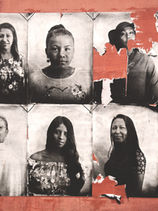

"When we listen and celebrate what is common and different, we become a smarter, more inclusive and better organization".
Pat Wadors, Head of HR at LinkedIn

Diversity
-
Diversity is not just a fancy a word of our times! Diversity has many descriptions and nuances - it can be described as a collection of conscious practices that involve the understanding and appreciating interdependene of humanity, cultures, values, abilities and traditions
-
"Diversity" means more than just acknowledging and/or tolerating difference
-
Intercultural aspects are part of diversity
-
Recognizing that personal, cultural and institutionalized discrimination creates and sustains privileges for some while creating and sustaining disadvantages for others
-
Building alliances across differences so that we can work together to eradicate all forms of discrimination.
-
Diversity management aims to deal with the diversity of employees, customers and other stakeholders in an organization in an appreciative, resource-oriented and constructive manner
-
Characteristics or categories of diversity can not only be visible - such as gender, age, origin - but also less visible - such as values or beliefs, professional experience or sexual orientation
-
Diversity management is a recognized concept or even a strategy to counteract negative effects caused by stigmatization and exclusion processes and pressure to adapt to non-dominant groups
Diversity is a FACT - Diversity is our REALITY
The following 5 diversity topics deal with special groups of people, their specific value systems and their interaction with homogeneous groups of people, not only within organizations but also across societies.
-
CROSS-GENERATIONAL Topics: Cooperation between generations
-
GENDER TOPICS: Women in leadership positions
-
(INTER) CULTURAL topics
-
LGTBQIA + Topics: People with queer gender identity and sexual orientation
-
People with disabilities and their inclusion in social systems
Cross-Generational Topics - A colorful mix of four different generations of people who are nowadays working together in the organizations:
-
Generations of the baby boomers (1956 - 1964)
-
Generations X (1965 - 1980)
-
Generation Y - Millennials (1981 - 1996)
-
Generation Z (1994 - 2010)
These generations share very different values, are shaped quite differently by social events, their life motto and motivation as well as their attitude to work cannot be more different. This clash of very diverse people in teams and organizations not only can lead to more creativity, higher performance in the development of diverse ideas, more dynamism, a variety of perspectives and skills, promote tolerance and empathy - but also can be a breeding ground for human conflicts based on differences of opinions and values, lack of tolerance, bias. Unsolved conflicts can lead in time to heavy emotional situations and burden people and stoping them to lead a healthy life. Mobbing, stigma, hate, exclusion can lead to burn-outs, depressions and other emotional illnesses. Do you recognize yourself in these structures?
GENDER topics: Women and their opportunities for advancement on the career ladder, more and more often in management and top positions. The growing right of women to have a say on the national and international stage in organizations and also in societies has greatly changed the world, has demonstrably enriched it and transformed the role of women in society. No triviality. More and more young women are choosing (often a not easy way) to ladder higher career positions and trying to prove their leadership qualities in often male-dominated organizations, to make the world a better place through their values, skills, femininity, strong intuition. What skills do they need to achieve such goals? what are they values, beliefs and skills they need to strenghten in order to succed?
(LGTBQIA+) People with diverse sexual orientation: they are particularly shaped by their life stories, motivations and values. Unfortunately, they are not allowed to feel at home all over the world, stigma, discrimination, persecution and humiliation are often shadows of our world that bounce off them.
Professionally and privately, I have been dealing with these topics for years and I admire all people who have managed to find their essence, return to them and live out their personality with outside help or on their own. To remain authentic and truthful even in difficult times!
Mixed and diverse teams are no longer unsual in companies these days. So much undiscovered potential in such teams can be identified through individual coachings and trainings in groups. Conflicts can be eliminated or reduced by eliminating biases, learn about unexpected chances - all this by changing old perspectives into new ones, widening the room for more than just "right" or "wrong" and creating confort through more possibilities and more colors in teams and in each individual's life.
Interculturality
The area of intercultural communication, not only from a historical point of view but above all due to extreme globalization and the expansion of travel opportunities on all continents, has become a very lively field of practice over the past few years.
Whenever people get into contact, worlds collide. This can already be the case within the same cultural group (North German/South German, Bavarian-Palatinate). The communication is somewhat relieved by the embossing of the cultural similarities, because it has similar roots and can use well-known bridge connections. Despite cultural similarities and a common language, potential personal conflicts are possible if value systems from the family of origin or from the company's own culture do not overlap.
Everything becomes even more complex due to the prevailing globalization of the economy. People from all over the world of different cultures, originis, backgrounds are nowadays trading, working, living together. They share completely different values and different traditions.
When people from "collective cultural groups" collide with people from "individualistic cultural groups", they are often not quite aware of the cultural dimensions of their interaction. Besides of the romantic part of the colorful mix and fascination of th opportunities that the diverse interaction can offer - there are often many difficulties that can escalate into conflicts. This is not only the case at corporate level but also in smaller groups of people (families, friends, etc.)
I accompany people who want to resolve intercultural conflicts, both in private environments and companies. Some of the topics are:
-
Working abroad | cultural dimensions
-
Domestic work with certain cultural groups
-
Conflicts resulting in living in bi-or multinational families
-
Identifying blockades triggered by intercultural conflicts
Diversity coaching in corporate settings enables clients to encounter differences in their companies, teams or even their lives, to learn to accept in a sensitive way, to minimize threats that may arise and to discover expanded possibilities in dealing with them.
Many people are not aware of how much their life, way of working or family patterns are shaped by their own or externally transferred cultural models. Uncovering them and integrating them into life can be discussed and worked on in coaching.
I am specialized during my years of work on some special cultural groups as:
- Eastern European : hungarian, romanian
- Nord-European: dutch
- Arabic groups: syrian, pakistani, iranian, afghan
- Nord-African group: moroccan











